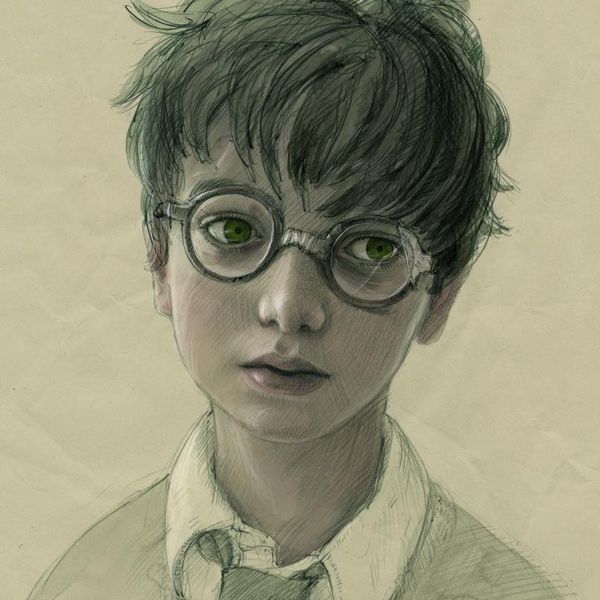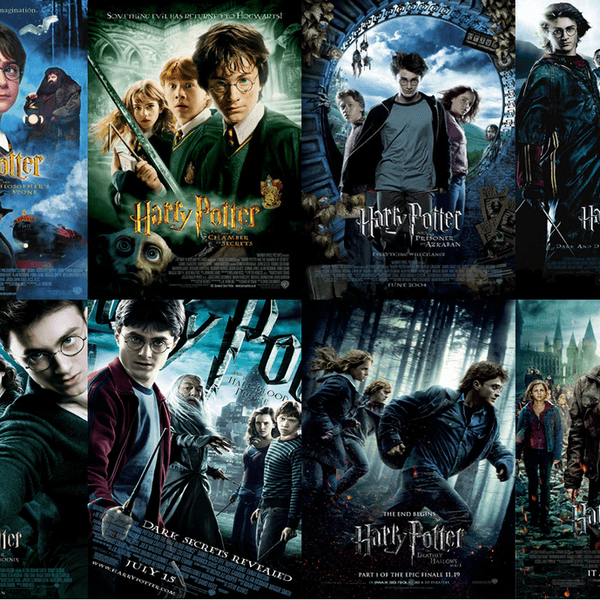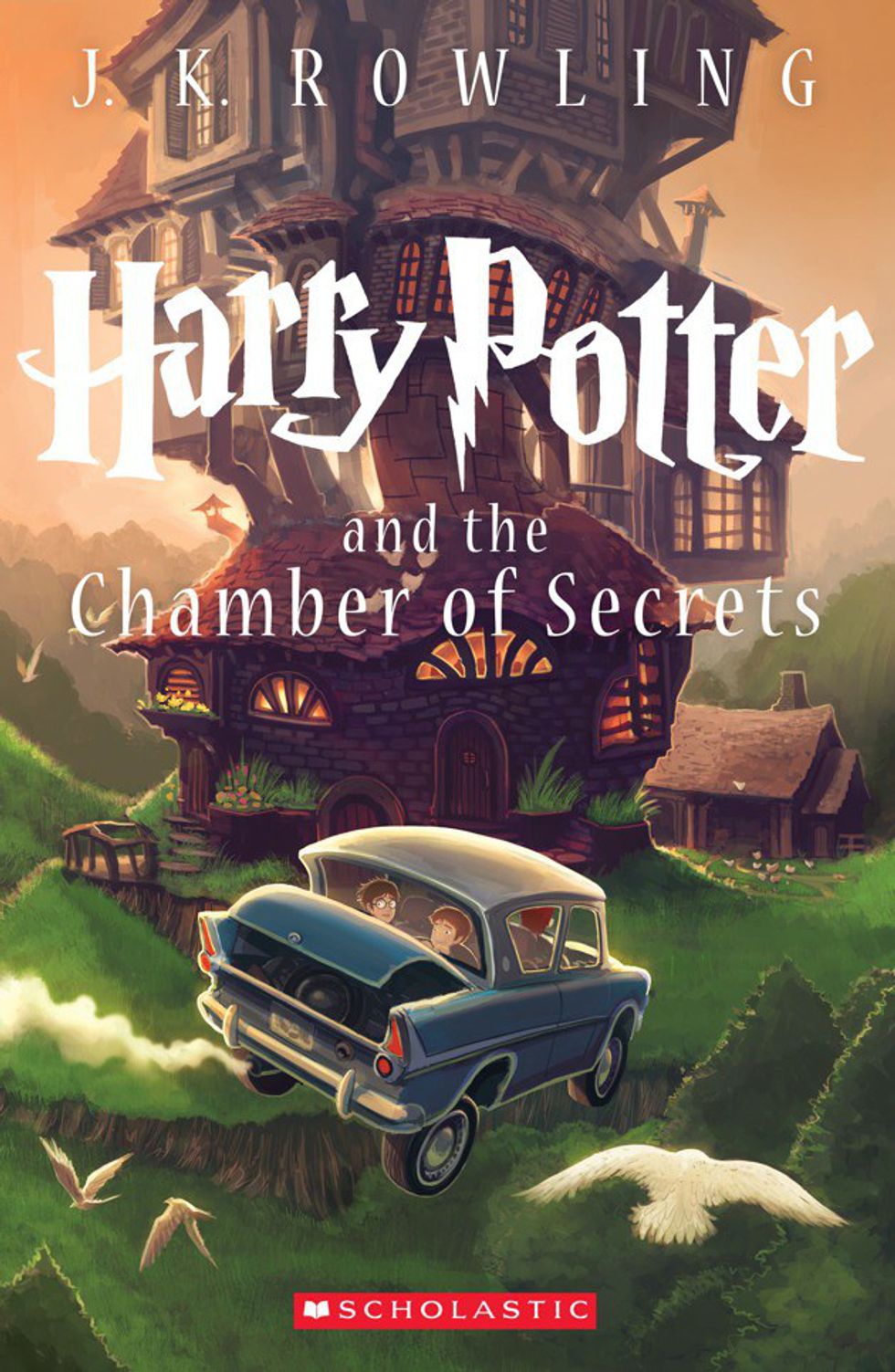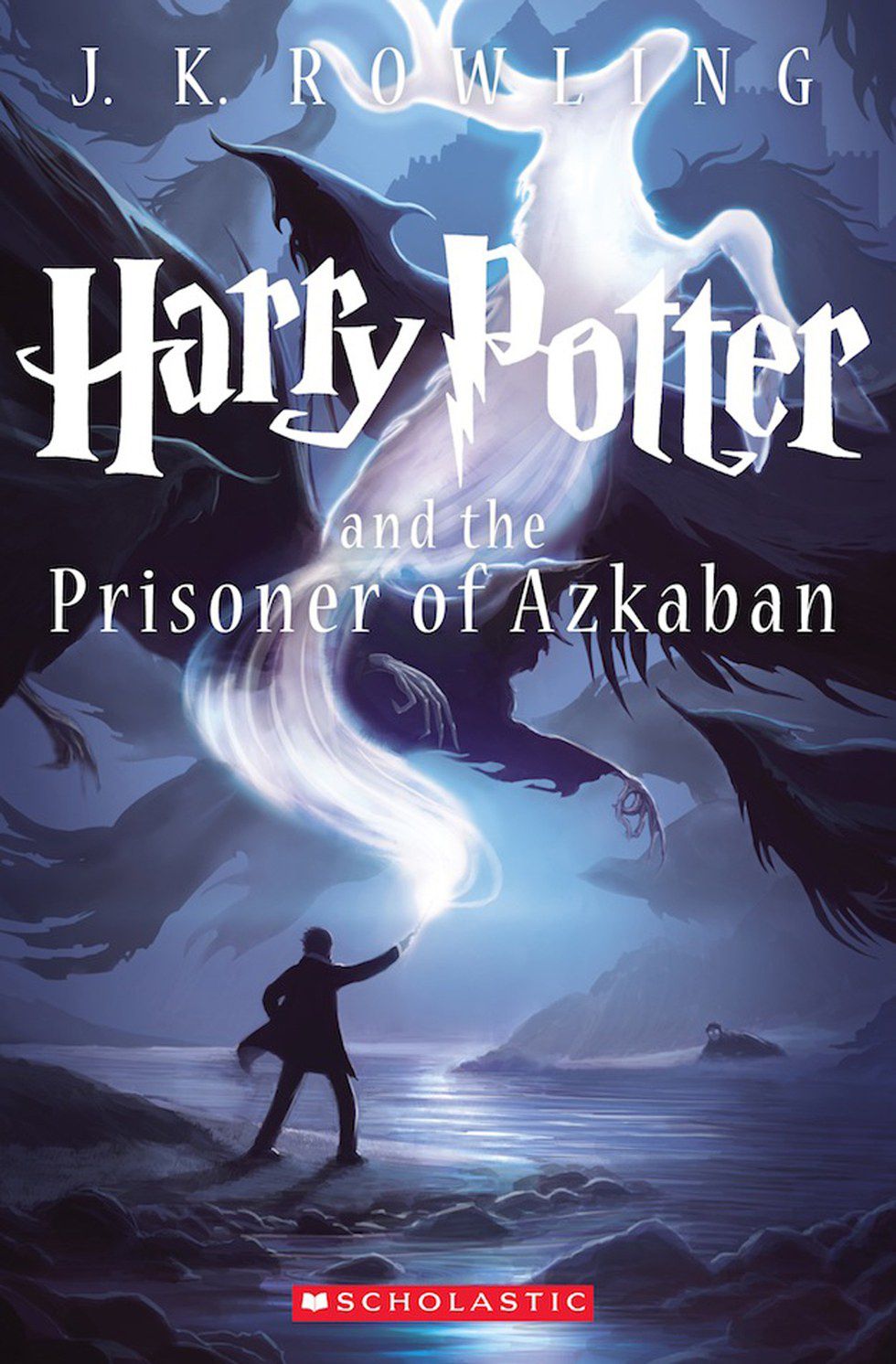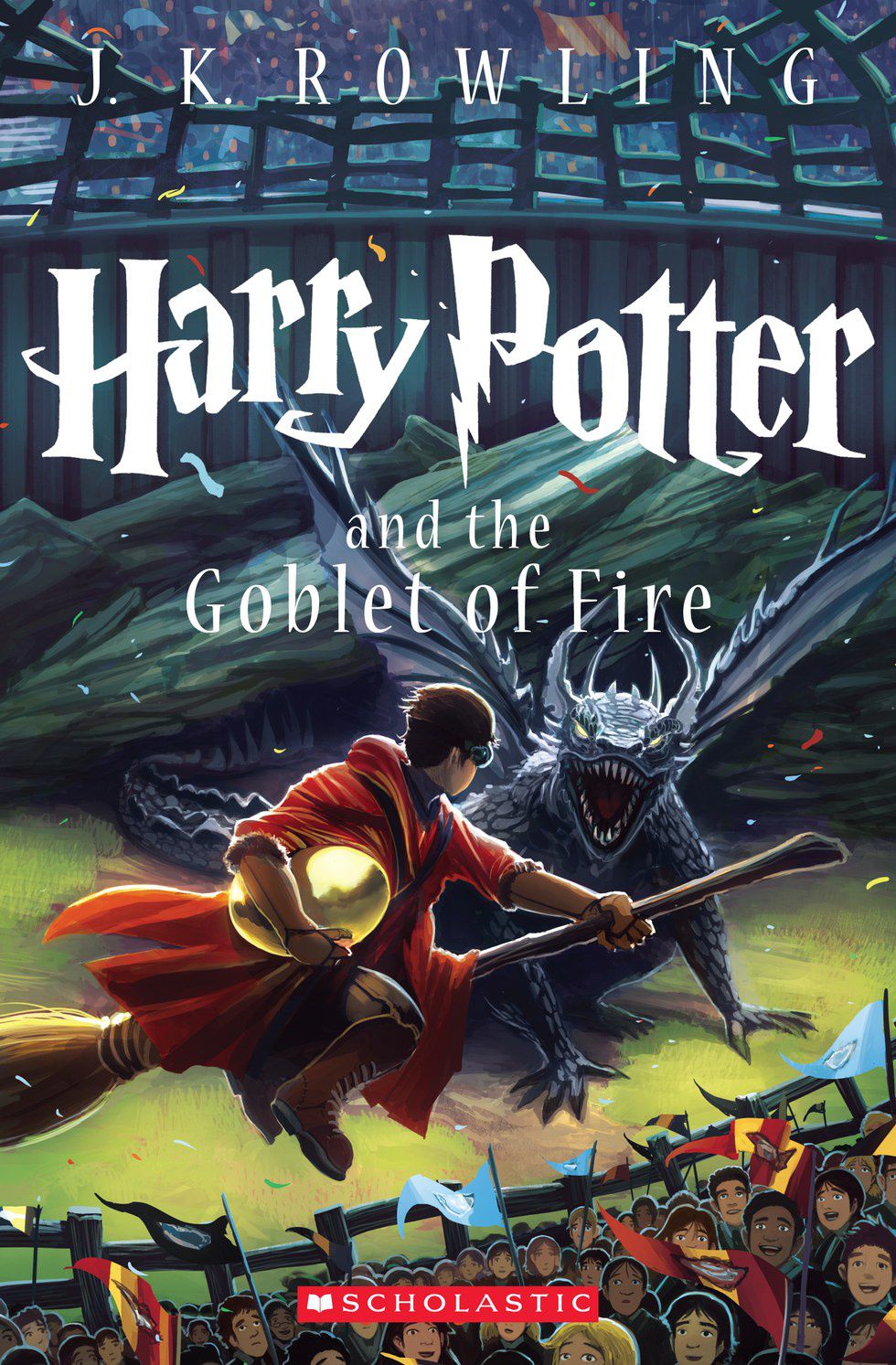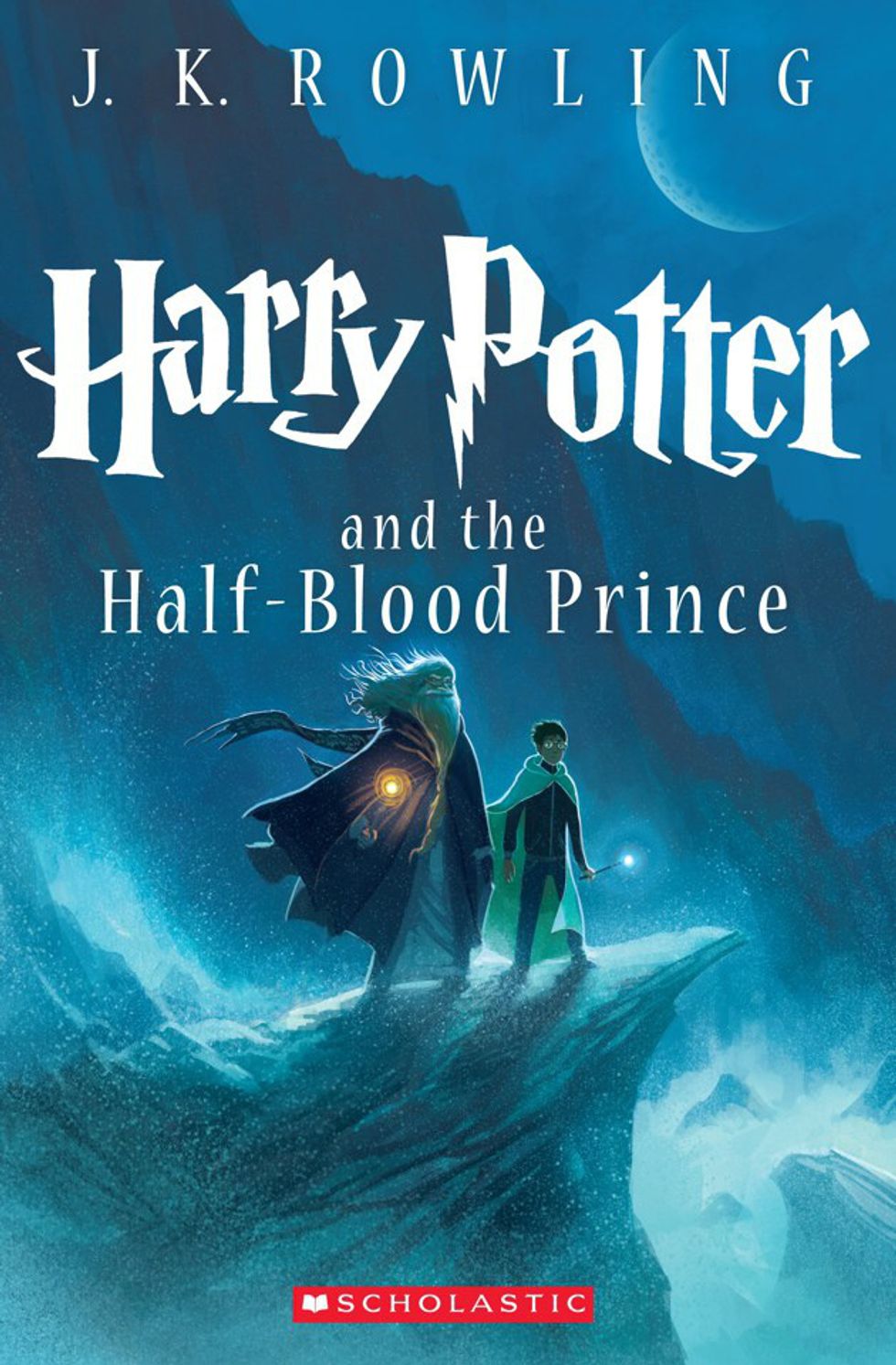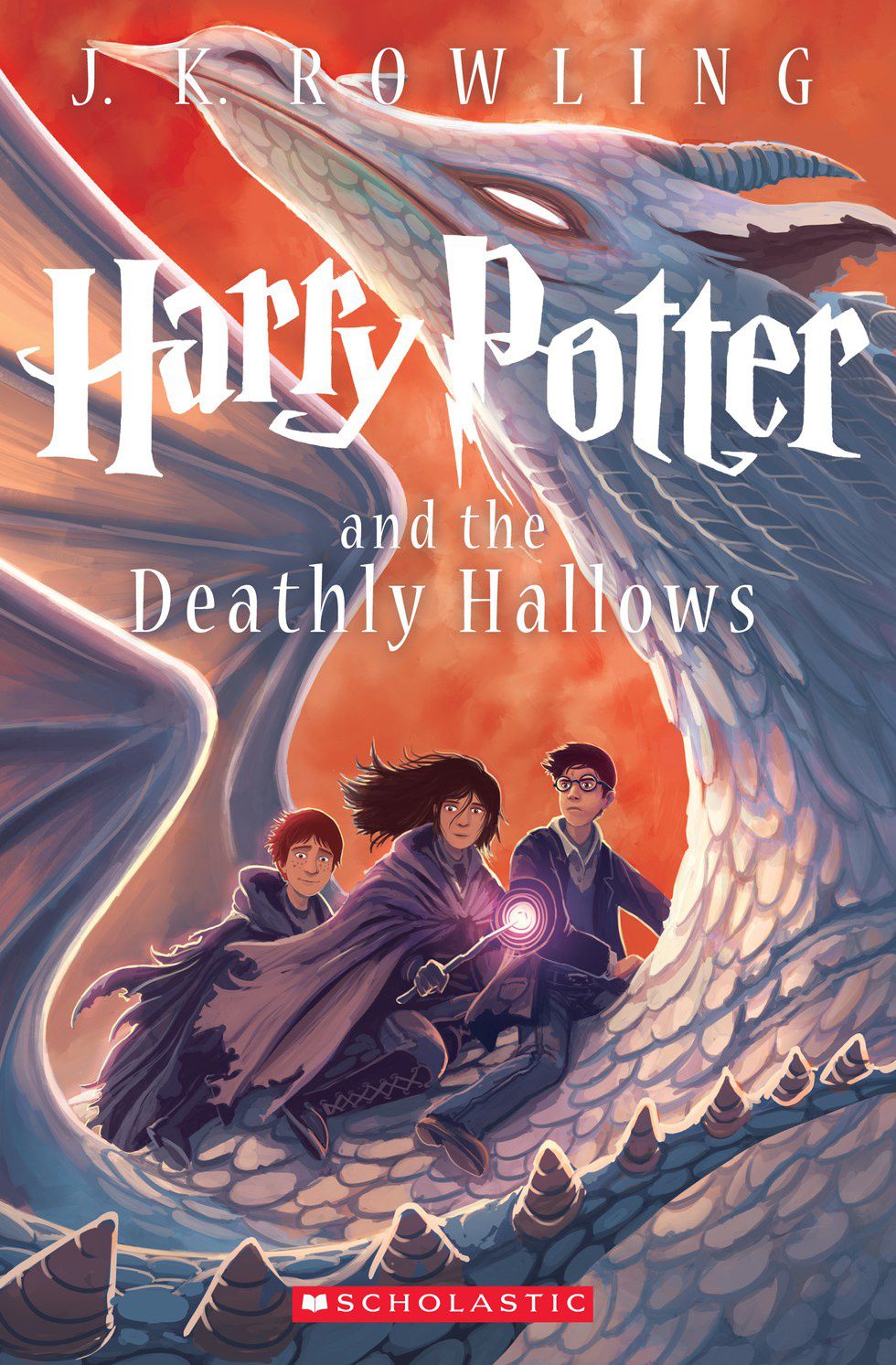I recently got my hands on the whole collection of Harry Potter books, and decided to spend as much time as possible reading them. Now that I'm an adult and also a writer, I could appreciate – and depreciate – a lot more of Rowling's writing, the story, the incredibly big scope of the world, and the characters.
This was my first time reading more than half of these books, since when I was younger I only got my hands on Philosopher's Stone, Half-Blood Prince and Deathly Hallows, which made me feel like a total poser whenever I said I was a big Harry Potter fan. I'm a fan of the movies, though, and reading the books gave me a new perspective of them and helped me love some of them even more and hate some other even more, but that's a list for another day.
So, after a lot of thought, here is the order in which I'd qualify each Harry Potter book, from worst to best:
7. Harry Potter and the Philosopher's Stone
Or Sorcerer's, as the British publishers thought you'd be too dumb to be able to say "philosopher."
Now, I understand that this is a book written for children, and I have to put that into consideration when evaluating it as a writer myself. And even though I'm sure children appreciate the dumbed-down explanations of some things and constant reminding of important events for the plot, but for me, it got very tedious after the first couple hours – Notable to add that I finished this book in less than 24 hours.
The first chapter, I think, is the best in the whole book, making fun of the simple and boring life of the Dursleys and the citizens of Privet Drive. Also, having grown up watching the movie and remembering – quiet literally – every single line of dialogue, I can say that the film adaptation of this book is almost a carbon copy of it, even using the exact same words in the most notable scenes.
Nevertheless, Rowling's writing was not in its prime at the time, so sometimes it can get very tedious for an adult to read it. What she did do well, however, is establish the characters and the world around them, and include some very, very smart foreshadowing for the events of future books, which just demonstrates how truly brilliant Rowling is as a storyteller.
6. Harry Potter and the Chamber of Secrets
This novel, unfortunately, suffers from the exact same mistakes as the first one, although I forgive them because I understand that it was written for children. Nevertheless, the whole mystery surrounding the Heir of Slytherin and the Chamber of Secrets is truly fascinating and very well paced – though it would've been even better if I didn't know the plot piece by piece thanks to the movie.
Like the previous adaptation, the film is a carbon copy of the novel right down to the dialogue, which is just amazing. As I grew up I heard that this chapter in the Harry Potter Saga was always the most hated, but I never understood why and I still don't.
The polyjuice potion, the Basilisc, Aragog, Tom Riddle's diary; they're all great plot devices that grant pretty entertaining and dark twists to a supposed children's novel, which I think helped the publishers understand that Rowling's overall story didn't deserve to be trimmed down for ages 8-12.
This novel, like every single novel in the series, features one of the most annoying aspects of Rowling's writing: the chapter where they sit down and explain. In every book – and I mean, all seven books – there's a chapter by the end, usually second to last, in which the characters sit around and explain what happened during the year at Hogwarts, and why was there so much trouble.
In Philosopher's Stone it's when Harry confronts Quirrel and when he sits on the Hospital Wing with Dumbledore; in Chamber of Secrets, it's when Tom Riddle's memory ghost explains everything to Harry, and Harry subsequently explains it to Dumbledore. This is one of the aspects that the movies actually did better, thankfully, because it really ruins the pacing and takes me out of the story completely. For practical purposes, lets call this the Explaining Chapter.
Now... This was really hard. Books 3-7 are all great in their own aspects, and I simply couldn't make up my mind with how to arrange them based on quality. The following five books have been arranged based on inconclusive thoughts, so don't take it too seriously.
5. Harry Potter and the Order of the Phoenix
I swear Book 5 isn't #5 on the list on purpose.
One of the most mature books of the saga – and the longest one, at more than 800 pages depending on the edition – this novel follows Harry and his friends after some of the darkest events in the whole saga, and confirmation of Lord Voldemort's return to power.
Right out of the bat I have to say that, most definitely, the most annoying factor in this whole book is Harry's temperament; he's angry about half the time, at his friends, at Dumbledore, at Sirius, at Snape, at himself. It just gets so tiring. I get it, he's having a hard time, but he didn't have to be such a whiny baby about it.
Apart from that, this book is actually incredible. It's superbly paced, considering its length, and it's ten billion times better than the movie #DavidYatesKilledHP. It has excellent character development for Dumbledore, Snape, Harry, Ron, Hermione and Sirius, and gives the reader some of the most heartbreaking moments in the series. The action is also extremely well written, and a lot longer than in the movie #DavidYatesRuinedMyChildhood.
I just need to say it: Umbridge is such a f*cking soul-reaping, face-reddening b*tch. She's, I think, the most infuriating villain in all the books, and gets a lot more to do when compared to the movie. Rowling's writing started getting a lot better by Book 4, so in this chapter of the series, we really get a glimpse of what Rowling is really capable of as a writer.
The explaining chapter comes in the form of a meeting in Dumbledore's office, but of all of the books, it's the second best written of all; the conversation feels natural, adequate and grounded, and even gets Dumbledore some character development. Great imagery, characters, dialogue and twists. Great and very underrated book.
4. Harry Potter and the Prisoner of Azkaban
The last of the short books, Prisoner of Azkaban looks like the point where the publishers realized that they had something great in their hands, and let Rowling go the more mature road she intended for the future of the novels. Presenting some of my favorite characters like Lupin and Sirius, the third book also acts as a turning point for Harry, introducing him for the first time to incredibly difficult decisions and ruthless enemies that threaten him and his loved ones.
Harry's arc in the book, revolving around Sirius Black, is probably the best arc he has in the whole series, experiencing for the first time things like personal hate, thirst for vengeance, hope, loss of hope, mortal disappointment, and the list goes on.
Unlike the movie, Sirius Black is actually portrayed not only as a real menace, but essentially as the villain of the book, infiltrating Hogwarts several times and seemingly sabotaging Harry and his friends. His relationship with Lupin and Harry's father is also a lot more fleshed out, but, sadly, at the expense of more than one explaining chapters in the Shrieking Shack, which get really long, but never not entertaining.
This, I think, could have been easily fixed by writing a flashback chapter between the other two – yes, they spend three chapters explaining stuff – chapters, similarly to what Rowling did in the seventh book.
Nevertheless, the pacing and the mystery get better and better as pages fly by, and Rowling's writing finally got to a good point, cementing her style and voice for the novels to come. Life in Hogwarts is also very extensive, giving Quidditch and classes a lot more of importance and relevance to the plot, which is, I think, what made the future books feel so big and gave Hogwarts a better sense of presence.
3. Harry Potter and the Goblet of Fire
Places 3 and 2 where the most difficult to sort out, but I think I finally did it. I was knocked off my feet as I was reading Goblet of Fire. The atmosphere, the twists, the lore, the adult characters talking about events of the past, the first chapter at the Riddler House; the scope of the Wizarding World got expanded so greatly, and so perfectly.
From all the books, this one is the one that really took the series into another level of excellence, introducing the Death Eaters and the bigger world, including the students of Durmstrang and Beauxbatons. The Tri-Wizard Tournament was also a great addition to the plot, making for very exciting sequences.
The characters in this book go through so, so much, it's just overwhelming to think about it. Not only is Harry tasked with surviving the Tournament, but with dealing with his crush on Cho, Ron and Hermione's feud, Ron's jealousy, his classes, Rita Skeeter's gossip, and, at the end, Voldemort himself, in one of the most shocking twists in the whole series.
It also introduces and develops some of the important adult characters, like Fudge, Dumbledore, Moody and Snape, and makes Voldemort and his followers a lot scarier, even before they actually appear.
My biggest problem with this book, however, is the explaining chapter. When Dumbledore captures the fake Moody and uncovers Barty Crouch Jr, he gives him a truth potion and he sits there and tells the story of the last thirteen years of his life, in one sitting, almost without any interruptions.
The pacing in this chapter is simply awful, and it took me out of the book completely; how, after what Harry just experienced, having Cedric's body downstairs, and seeing that Alastor Moody was not the one teaching students this whole year, does Dumbledore allow for such a long conversation to happen? Just sitting there, talking.
The plot with Barty Jr. is a lot more complicated than in the movie, however, so it did need a lot of explanation. Still, I think it could have been done a lot better. Nevertheless, the book is absolutely excellent.
2. Harry Potter and the Half-Blood Prince
For a very long time, I called this my favorite book in the whole series; after experiencing it as an adult, I must say it's even better than I remembered. This one and Order of the Phoenix are, hands down, where Rowling's writing shines most. The character banter, the moments inside their heads, the imagery with the potions and the cave and the tower, they're all just brilliant particles of a brilliant piece of literature.
From Rowling's bold decision to reveal in the second chapter that Snape is still a Death Eater, to actually killing Dumbledore and disappointing Harry with a fake horcrux, this book is when everything got so real, it actually got scary.
But no matter how great the rest of the book is, nothing compares to the chapters Harry spends with Dumbledore inside the pensieve, exploring Voldemort's past. The story of the Gaunt family and how Tom Riddle became Voldemort is one of the most interesting, fascinating and heartbreaking arcs in the whole series, and the fact that everything makes sense in the end just makes Rowling even more of a badass writer and storyteller.
And, after re-reading the book over ten years after my first time, I hate the movie even more than I did when I watched it in the theater all those years ago. The movie focuses so little on what makes the book so great: the pensieve, the Quidditch, Harry's relationship with Ginny.
The movie even features a super huge plot point that doesn't even occur in the book, the attack at the Burrow, instead of using that precious time to show one of the visions in the pensieve, or something. #ScrewYouDavidYates
This book, fortunately, features the best explaining chapter of all, starting with the fact that it isn't even a complete chapter; when Malfoy captures Dumbledore at the top of the tower, the two share short spurs of conversation that explain Draco's attempts to get to Dumbledore, but do it in such a casual and well-written way, that it fits with the story and doesn't feel like an explaining section at all. Top-notch writing, Jo.
1. Fifty Shades of Neville Longbottom
Lol just kidding.
1. Harry Potter and the Deathly Hallows
This novel is simply epic. There's no other way to describe it. From the very beginning, we're treated to great exposition chapters that tell the story of Dumbledore as a young man, and give us glimpses at how the world is reacting to the return of Lord Voldemort.
Harry's mission to find the horcruxes takes over any plot regarding Hogwarts or classes, which make it by the very beginning a very different book from any of the others. All of the heartbreaking deaths and twists add to the great writing by Jo Rowling, even though it doesn't match the level of excellence of the previous two books.
Harry's quest for the Deathly Hallows is also fascinating, and meshes surprisingly well with all the other subplots. Dumbledore's story, Harry's past, and some of the deepest character development for secondary characters like Ron and Neville all give the book a great sense of realism and character truth.
The Battle of Hogwarts could have been more epic, however, and it's pretty much the only thing David Yates got right in his adaptations of the book; other than that, the book is a nonstop thrill ride with some of the best banter Rowling has written between the three friends.
The explaining scene comes in two parts, both well-written but not too subtle nor well paired with the rest of the story. The first is after Harry "dies" and gets visited by Dumbledore inside of his head; the other one is at the end of the battle, where Harry and Dumbledore stand in front of each other, surrounded by people, talking about the plan and what happened with the Elder Wand.
This, along with the corny-ass explanation about Lily's love protecting the students of Hogwarts, make the final battle a little disappointing, but the rest of the book more than makes up for it.
The epilogue made me cry when I first read it back in 2008, and it made me cry when I watched it in the movie in 2011. No matter what people say, that epilogue is the perfect closing for a great series of books whose themes go from death, friendship, bravery and responsibility, along with iconic moments in literature and film, unforgettable characters, and one of the biggest fandoms int he world.
Truly, Harry Potter will never die in the hearts of its fans, and JK Rowling shall never, ever be hungry again.
Keep rocking, Jo.
Peace out.
#DavidYatesWillRuinFantasticBeasts

